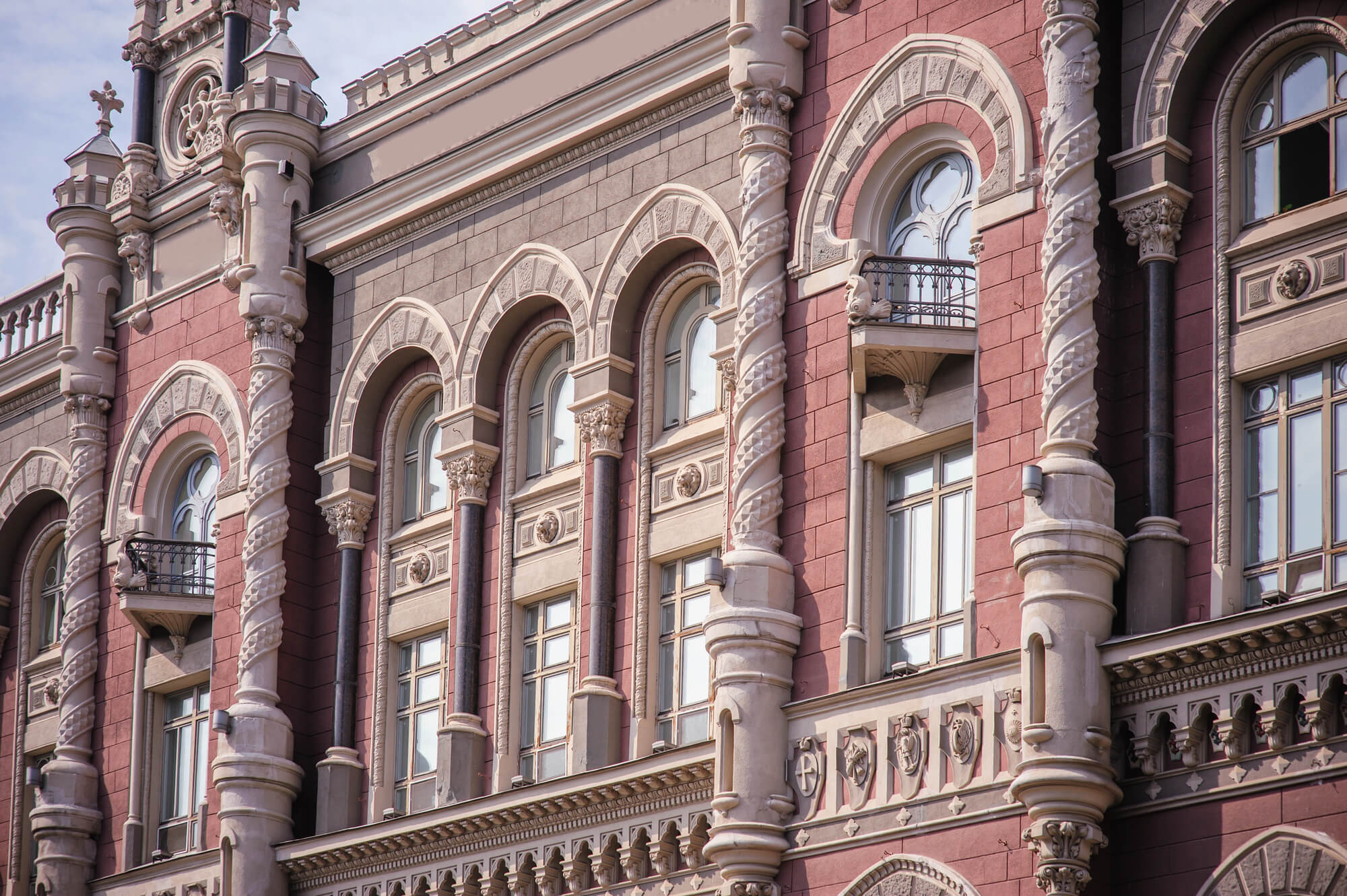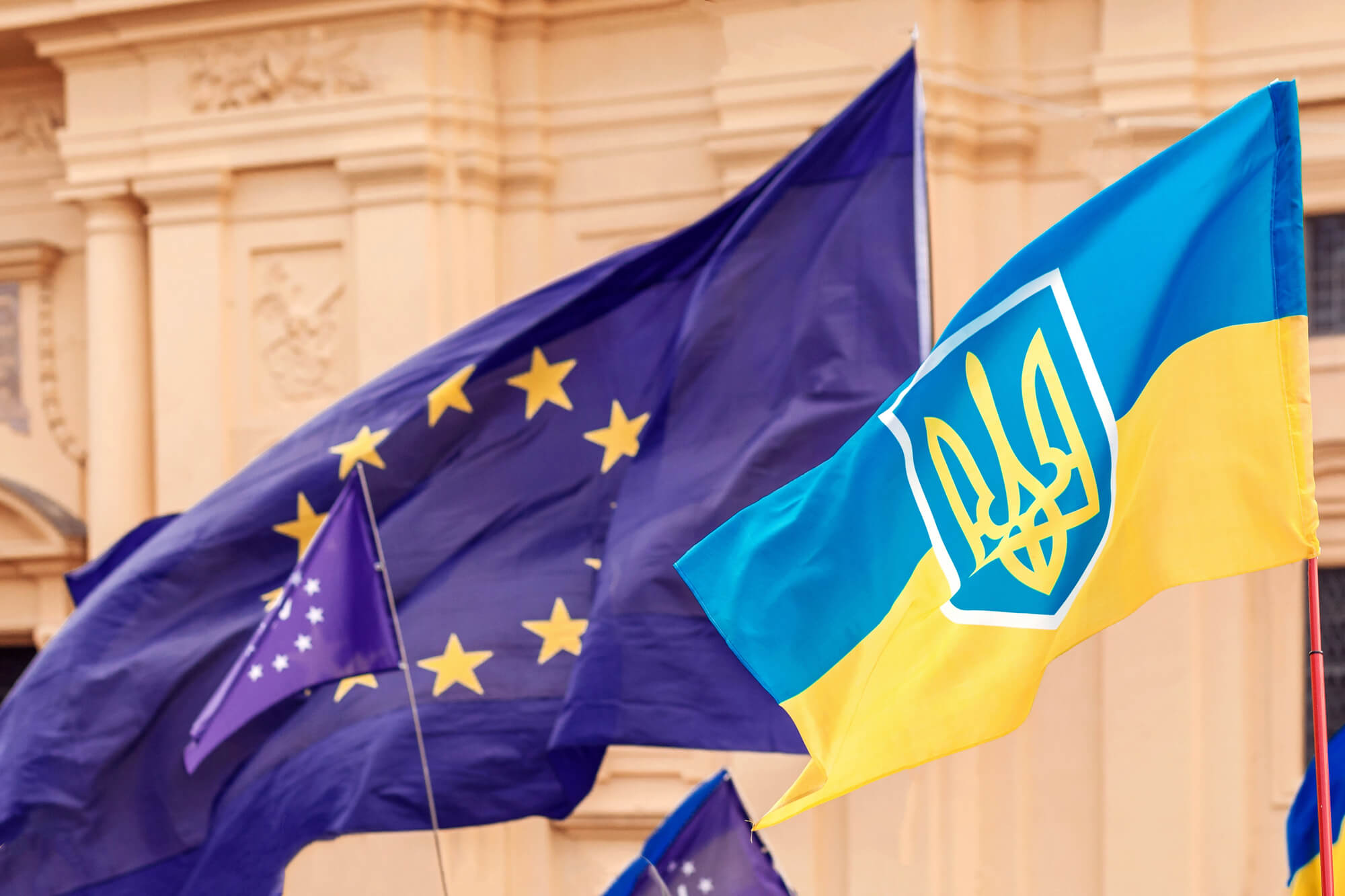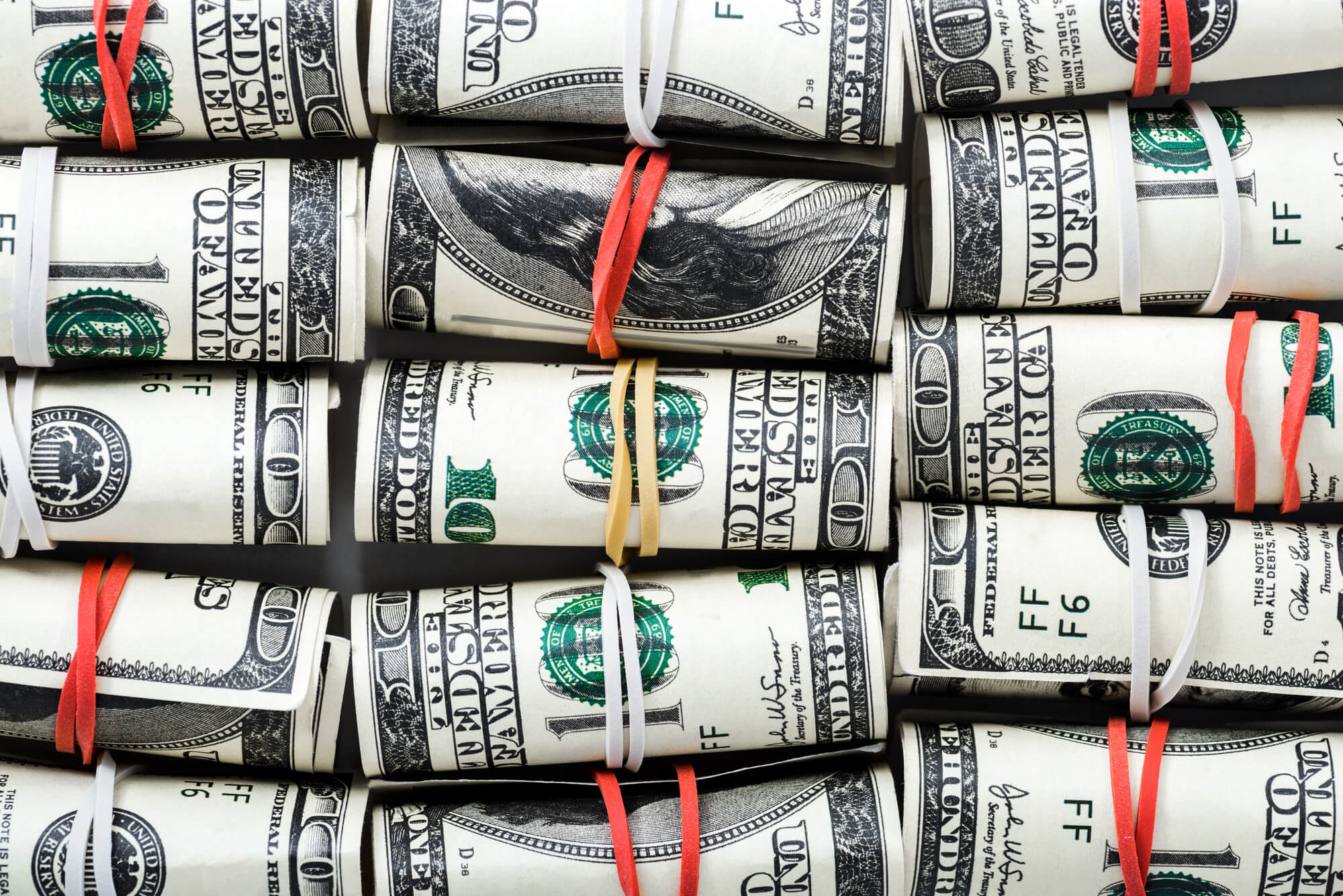On May 28, 2019, the newly elected President of Ukraine Volodymyr Zelenskyi restored Mikheil Saakashvili’s Ukrainian citizenship. On the very next say Saakashvili returned to Ukraine; afterwards, he began to prepare for the early parliamentary election. His party “Movement of New Forces” received 0.46% of the votes.
What was Mikheil Saakashvili telling his voters? His rhetoric has hardly changed since 2016: he compares Ukraine with Georgia, focuses on Georgia’s successes under his presidency, and recalls the positive changes in Odessa when he was the governor of the oblast. His criticisms of the authorities and emphasis on Ukraine’s problems also remained unchanged.
In this article we analyze how truthful he was in his comments on these subjects.
On joining NATO and the EU
True
“Who told you that if you do nothing about the grabbing of the Crimea then you will be admitted to the European Union, to NATO? On the contrary, it will be a reason for not admitting you, because you have a territorial conflict on your hands.”
Article10 of the North Atlantic Treaty specifies that the bloc can invite any other country in a position to further the principles of the Treaty and to contribute to the security of the North Atlantic area to accede to the Treaty. While no official document says that an in-country war necessarily rules out accession to the Alliance, the Study on NATO enlargement indicates that candidates for membership must settle any territorial or ethnic disputes they may have by peaceful means and that resolution of such disputes would be a factor in determining whether to invite a state to join the Alliance. Therefore, an unresolved dispute, especially in the absence of a stable truce, is an obstacle to joining NATO, since the Alliance commits itself to ensure the security of its members.
The EU pre-accession conditions (the Copenhagen criteria) require the availability of stable democratic institutions, efficient market economy, and ability to take on the obligations resulting from membership in the EU. The document does not indicate that an in-country war is a condition ruling out accession to the EU. However, a common external policy and security policy are the main elements of the EU as a political union and this may influence the decision on a country’s bid for membership.
On the GDPs of Ukraine and Estonia
Let us compare Estonia with Ukraine on 5 parameters.
| Estimates for 2019 | Estonia | Ukraine | Estonia/Ukraine |
| Population | 1.32 mln | 41.88 mln | 0.032 |
| GDP per capita (PPP) | $ 35,720 | $ 9,740 | 3.67 |
| GDP (PPP) | $ 47,130,000,000 | $ 408,040,000,000 | 0.12 |
| GDP per capita | $ 23,510 | $ 3,220 | 7.3 |
| GDP | $ 31,030,000,000 | $ 134,890,000,000 | 0.23 |
It can be seen from the table that Estonians are 3.67 times richer than Ukrainians in terms of GDP (at purchasing power parity) per capita; in terms of GDP per capita at the current exchange rate, they are 7.3 times richer.
As regards total GDP Ukraine is 4.35 times richer than Estonia; in terms of GDP at PPP, it is 8.7 times richer. It should be borne in mind that the population of Ukraine exceeds 31.7 times that of Estonia. This accounts for the essential difference between the GDP ratio and the per capita GDP (nominal as well as at PPP) ratio.
Since it is more reasonable to make comparisons between countries on the basis of GDP per capita (PPP), which nullifies the difference in purchasing power between the national currencies, we lean towards the verdict “untrue”: 5 is larger than 3.67 by nearly 36%.
On the Netherlands as an agrarian country
True
“An agrarian country, in the modern sense, is not a country like Ukraine. An agrarian country is the Netherlands, which is […] the biggest manufacturer of export-oriented products in Europe.”
The Netherlands is the second largest exporter of agricultural products in the world, behind only the United States (number one in Europe). The total volume of agricultural products of the agricultural sector of the Netherlands amounts to € 65 billion.
On migration
There is no precise data on the number of Ukrainians going abroad each year. In September 2018 Pavlo Klimkin said that one million citizens leave Ukraine annually. There is also information indicating that 662,000 Ukrainians received their first EU residence permit in 2017, 88% of them doing so in Poland. Most likely, not all of them leave the country for good; many go there and back as labor migrants or to obtain an education.
For more information on migration, please read the article “The Great Migration: Why No One in Ukraine Knows How Many of Our Citizens Went Abroad.”
On punishment of presidents
True
“Presidents are jailed in many countries. Three were jailed in Peru. One was jailed in Brazil and now a second one is about to be imprisoned. Two were jailed in South Korea. There was a case of imprisonment in Taiwan. Those are all developed countries.”
At present, a huge investigation is underway in Latin American countries which is related to the activities of the company Odebrecht and the corruption schemes it has been using in its operations. Thus, in Peru former Presidents Ollanta Humala (2011 – 2016) and Pablo Kuczynski (2016 – 2018) are in custody, while Alan Garcia (1985 – 1990, 2006 – 2011), who was also associated with the Odebrecht investigation, committed suicide. Another Peruvian President, Alberto Fujimori (1990 – 2000), was sentenced for human rights violations and corruption unrelated to the Odebrecht scandal. In Brazil, exposure of corruption related to the Odebrecht case led to the arrests for corruption of two ex-presidents, Luiz Inácio Lula da Silva (2003 – 2011) and Michel Temer (2016 – 2018).
In South Korea, the country’s former presidents Lee Myung-bak (2008 – 2013) and Park Geun-hye (2013 – 2017) were sentenced by court for corruption schemes and bribery involving the corporations Samsung and Lotte. In Taiwan, ex-President Chen Shui-bian (2000 – 2008) was sentenced for corruption and money laundering.
According to UN classification, the aforementioned countries are developing rather than developed economies. Nevertheless, it is true that there is a global trend towards prosecution of top officials because of their involvement in corruption schemes.
On new faces in the Parliament of 8th convocation
56.5% of the People’s Deputies elected in the 2014 parliamentary election have never been MPs before. Those “new faces,” however, were new only as MPs; previously, a part of them had occupied high administrative positions or e.g. served as aides to Verkhovna Rada deputies.
On upsurge of the economy of Georgia
Nominal GDP expressed in dollars really increased from 4 billion in 2003 to 16 billion in 2013. But in assessments of economic growth over time, actual GDP growth is used; it amounted to 76%. This is indeed a very substantial result, but it is not as high as claimed by Saakashvili.
On increase of Georgia’s budget
Manipulation
“(When I was President – editor’s note) Georgia’s budget increased 12 times.”
Between 2003 and 2013, the budget revenues, expressed in dollars, increased 11 times: from $ 470 million to $ 5.1 billion. In the national currency, the State Budget of Georgian increased 8.58 times: from 1 billion laris in 2003 to 8.58 billion laris in 2013.
However, instead of calculating budget changes in dollars, it would be more appropriate to calculate the actual budget revenues, i.e. having regard for inflation. In 2003-2013, inflation amounted to 83.5%; that is, in real terms the budget increased nearly 4.7 times.
On comparison of reform processes in Georgia and Ukraine
Untrue
“When I started – for comparison, Georgia’s development – Georgia was three times poorer than Ukraine. When I finished, it had a national product twice as high as that of Ukraine.”
When it comes to countries of different sizes, it is appropriate to compare them based on per capita rather than absolute figures.
The speaker refers to different parameters – GDP and GNP; therefore, we checked both.
As regards GDP (PPP) per capita, in 2003 Georgia was 28% “poorer” than Ukraine; in 2013 the figures were approximately equal.
| GDP per capita (PPP) | Ukraine | Georgia | Georgia/Ukraine |
| 2003 | $ 5,225 | $ 3,759 | 0.719 |
| 2013 | $ 8,647 | $ 8,694 | 1.005 |
In 2003, Ukraine and Georgia had a GNP (GNI) per capita (Atlas method) of almost the same level; in 2013, Georgia’s figure was 13% higher than that of Ukraine.
| GNP per capita (Atlas method) | Ukraine | Georgia | Georgia/Ukraine |
| 2003 | $ 980 | $ 990 | 1.010 |
| 2013 | $ 3,800 | $4,300 | 1.132 |
On economic reforms in Georgia under his presidency
True
“In my time, Georgia became the number one reformer in the world. Number one! For five years, we held the position of the top reformer in the world. We moved from 127th place in doing business to 7th place.”
During the years of Saakashvili’s presidency, Georgia was on three occasions in the Top 10 of countries that in one year – or during the year covered by the ranking – had shown considerable improvement in doing business. Those years were 2004 (2006 ranking), 2005-2006 (2007 ranking), and 2006-2007 (2008 ranking); it should be noted that Georgia was at number one in the 2007 ranking only. Nevertheless, Georgia’s progress in liberalization of doing business is undisputed – it is one of the most successful reformers. During the Saakashvili period Georgia gained 32 ranking points; at that time, it was the second best score in the world, after that of Rwanda.
On corruption in Georgia
In the Corruption Perceptions Index from Transparency International, Georgia is in 41st place out of 180. Having 58 ranking points out of the maximum 100, Georgia is still far from the status of a country devoid of corruption.
VoxCheck delivers no verdict to this statement, since the above ranking is an assessment of corruption perceptions rather than corruption itself, while the speaker was referring to corruption.
Although the aforementioned ranking is an assessment of the way corruption is perceived rather than of corruption itself, no country in the world is totally devoid of this phenomenon; therefore, the verdict is “Untrue.”
On corruption in Georgia
Untrue
“We have become the second-ranking non-corrupt country in Europe, after being the most corrupt one.”
In 2003, Georgia was in the 124th place out of 133 in Transparency International’s Corruption Perceptions Index. Among the countries of Europe included in the ranking, Georgia was indeed the last one. In the 2013 ranking Georgia went up to the 55th place out of 175, holding the 25th position among the European countries, not the second as claimed by the speaker.
On the level of safety in Georgia
Exaggeration
“Georgia has become the safest country in Europe, in terms of statistics. It is safer than Iceland (during Saakashvili’s presidency – editor’s note). And in third place among the safest countries in the world. I think only Brunei is ahead of us.”
Usually, a country’s safety is measured on the basis of the Crime Index for Countries. In 2013, Georgia was third in Europe (after Malta and Luxemburg) and 8th in the world. Iceland was indeed less safe than Georgia, holding 11th place worldwide and one place below Georgia in Europe.
Georgia held the 3rd place in the world (after Singapore and South Korea) and hence was number one in Europe in 2016, after Saakashvili’s presidency.
On Ukraine’s GDP being higher than that of Poland at the beginning of independence
Untrue
“Ukraine was 30% richer, in terms of GDP, than Poland, in 1991, in absolute per capita figures.”
Ukraine’s per capita GDP in 1991 was $ 1,490; that of Poland, $ 2,240. That is, nominally, we were even lagging behind Poland by 34% (or Poland was ahead of us by 50.4%).
Ukraine’s per capita GDP (PPP) in 1991 was $ 6,400; of Poland, $ 5,900. Thus, the difference amounted to 8%.
On poverty of Ukraine
Untrue
“At present, (Ukraine – editor’s note) is the poorest country in Europe in terms of per capita GDP.”
Ukraine is in the last but one place in terms of GDP per capita (PPP) in Europe. Ukraine’s figure is $ 9,740. The poorest country is Moldova, with $ 7,700.
On the number of tourists in Georgia
No verdict
“Before my presidency, Georgia was visited by 50,000 tourists; at the end of my presidency, 7 million plus something began to visit us; that is, you see how big the increase was; among them, there really are about one million Russians.”
We don’t know what year Saakashvili is referring to when he says “before my presidency.” Therefore, for comparison we took 2003 – the last year before his term in office began.
According to World Bank data, in 2003 Georgia was visited by 313,000 tourists, which is 6 times more than Saakashvili said. And in 2013 there were 4,950,000 tourists, which is 30% less than he claimed.
For 2013, data is available from another organization, the Georgian National Tourist Administration. Based on that data, Georgia was visited by 5.39 million tourists. Even that figure, however, is 23% smaller than the claimed one.
According to data from the Georgian National Tourist Administration, in 2013 Georgia was visited by 767,000 Russian tourists. It was only in 2016 that the figure went up to one million. Still, the number of Russian tourists did increase during Saakashvili’s presidency: in 2009 it was as low as 127,000.
The idea that there was an increase in the number of tourists in Georgia is true; but because of data ambiguity in the official sources, we leave the quotation with “No verdict.”
| Number of international tourists (arriving in the country) | World Bank | Georgian National Tourist Administration |
| 2003 | 313,000 | no data available |
| 2013 | 4,950,000 | 5,390,000 |
| 2017 | 6,480,000 | 7,560,000 |
On the developmental budget of Odesa
Untrue
“At present, the developmental budget of Odesa amounts to more than 11 billion hryvnias.”
The developmental budget of the City of Odesa for 2019 is 3.6 billion UAH (in terms of expenditures, Appendix 6). 11 billion UAH is the total amount of the local budget envisaged by the 2019 budget (Appendix 1).
On how soon Ukraine will catch up with Poland
True
“If Ukraine continues to develop at its current rate, we will catch up with Poland in 50 years.”
The World Bank really did declare that if the current rate of development persists, Ukraine will need more than 50 years to reach the level of revenues of today’s Poland.
In 2018, Ukraine’s GDP increased by 3.3%, reaching $ 131 billion, according to World Bank data. Poland’s 2018 GDP was $ 586 billion.
Thus, if Poland’s GDP remains at the same level, Ukraine will really need about 46 years to catch up with Poland, should the current rate of economic growth persist.
On the impact of the Russian embargo
Exaggeration
“When we had a complete Russian embargo from 2006, Georgia’s economy began to grow at a rate of 11-12%. It did not just fail to kill us – when we were oriented towards modern economy, when there was no corruption, it was in fact at that point that Georgia began to advance very fast; so the Russian embargo is not quite a tragedy if you have a patriotic government that knows how to act.”
Compared to 2006, in 2007 Georgia’s GDP really increased by 12.5%. Still, the embargo on the part of Russia was not complete – the ban was only imposed on importing wines and mineral waters.
On Georgian pensions
Technical error
“When I became President, the pension in Georgia amounted to $ 6-7 and it had not been paid for the past six months; when I finished my presidency, the pension was $ 150.”
In 2004, the pension amounted to $ 8.5 (18 laris); in 2013, to $ 90 (150 laris).
Most likely, Mikheil Saakashvili mistook 150 laris for 150 dollars; therefore, we lean towards the verdict “technical error.”
VoxCheck does not check the statement as regards nonpayment of pensions on account of lack of data.
Attention
The authors do not work for, consult to, own shares in or receive funding from any company or organization that would benefit from this article, and have no relevant affiliations


